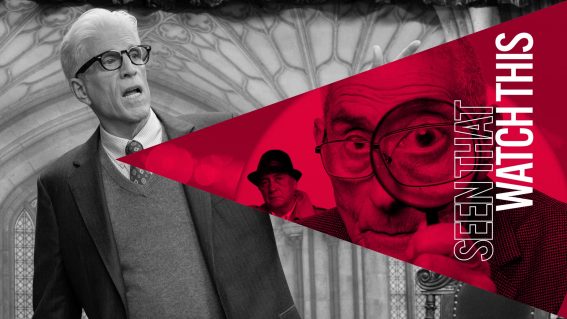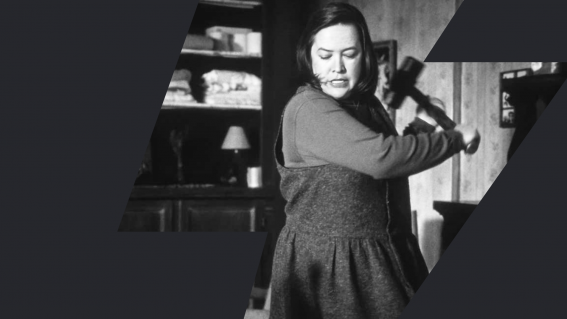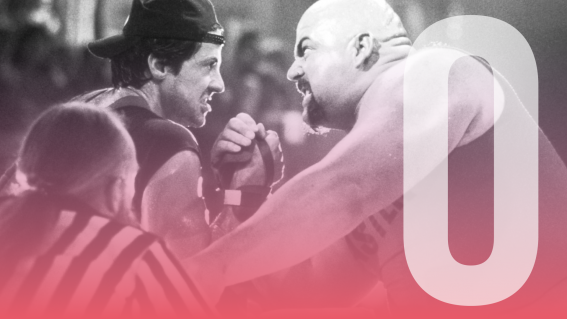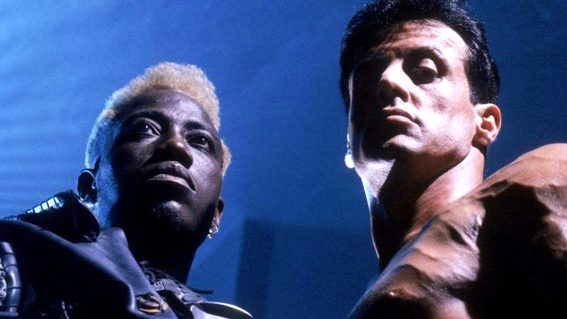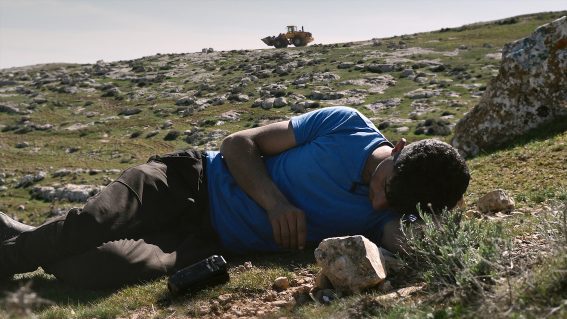“We Are Not Goddamn Robots” – The Biggest Movie Theme of 2016

Modern science continues to blur the line between artificial intelligence and human intelligence. Internet and interconnectivity have caused drastic shifts in how all of civilisation functions. People utilise smartphones as if they were hooked up to their cerebral cortex.
We as a species are progressing hastily towards a new era where man and machine become one, a theme currently being explored in HBO’s Westworld. (Don’t believe me? Maybe you’ll believe an actual AI professor.) But this subject is far-reaching, with this year’s crop of movies acting as feature-length warning signs to where we may be headed.
And according to 2016, we are not goddamn robots.
[Note: Technically, some of these films are 2015 titles released down here in 2016. But please, ignore that technicality.]
While we’ve had films from the last few years taking the fear of robot superiority very literally in fantastical sci-fi settings (I, Robot, Avengers: Age of Ultron, every single Terminator film), some of this year’s most powerful films focused on the modern-day robotic systems that govern human life and the horrors such bureaucracy can produce.
Ken Loach’s Cannes-winner I, Daniel Blake took an electrical cord of compassion and strangled the shit out of this subject, making me (and many others) a choked-up, puffy-eyed mess. The story is as straightforward as a fired arrow, following an older widower and a young single mother of two struggling to get an income from state welfare who make them jump through brick walls with hoops painted on them.
Screenwriter Paul Laverty researched this topic into the ground, speaking out about a real-life system that favours regulations over the unique needs of any given individual. The machine is more important than the man.
When these systems – these machines – are left to strangle the life force out of communities, life will fight back. The US economy is one such beast, with Starred Up director David Mackenzie and Sicario writer Taylor Sheridan observing its devastating effect in the excellent Texan heist thriller Hell or High Water.
Lingering shots show small towns in decay, waiting for a wind strong enough to blow them into dust. More stores are closed than open, slapped with graffiti marks that echo a common hatred for crooked bankers. The population appears eerily small, containing just enough souls to stop it from being a ghost town.
It’s essentially what a post-Skynet world would look like if the robocalypse was won with contracts instead of bullets.
Our reliance on systems include virtual reality, which was profoundly tapped into with Clint Eastwood’s Sully. Tom Hanks portrays the real-life pilot Chesley Sullenberger who, in 2009, saved all 155 lives on his plane when he was forced to conduct a crash landing on the Hudson River. He was rightly hailed a hero, but an investigation into the crash drew the conclusion that Sully could have gone with the far safer option – turning right back around and using the runway.
This was deemed conclusive when four out of four virtual flight simulations proved this theory right. Except, as the film points out, the VR pilots disregarded the “human factor” by turning immediately after engine failure. When the simulations allowed a reasonable human delay, things were coming up Sullenberger. (And yeah, this really did happen.)
These films convincingly suggest that technology and technical processes have a way of taking over our humanity, but we can also be guilty of using tech and process as a means to justify horrible human decision. This is where I gawk over my favourite movie of the year – Eye in the Sky.
The film is a morally-complex bunker-room war thriller about a drone strike team that is presented a rare opportunity to take out a key terrorist unit. It’d be easy to give the go-ahead if it wasn’t for a little girl who enters the strike zone. To put it elegantly, Helen Mirren pretty much says “Fuck it, bomb ‘em any way” and Alan Rickman is like “Yeah, we should probably do it” but his council are all like “Yeah, nah, dunno.”
The situation is in a standstill as the decision makes its way pass the bureaucratic abacus until it farts out a yes or no. Meanwhile, Mirren does all she can to manipulate the process in order to get her way. It all hinges on calculations – collateral damage, area of effect, chances of fatality in the form of a percentage – that determine whether a little girl gets bombed or not.
It expresses a fear of humanity becoming too robotic, which is very relevant to the subject of drone warfare. But this theme has flourished in more intimate settings, too. German film festival sensation Toni Erdmann found a mounting snowball of comedy in this tragedy, where a severely overworked woman struggles to connect with her goofball father. Charlie Kaufman also managed to mine a surreal and sombre gem in Anomalisa, the stop-motion romantic drama that blurs the line between man and machine before bringing it back in focus (then blurring it again).
Some of 2016’s biggest blockbusters have been in favour of humanity returning to nature. Jon Favreau’s The Jungle Book instantly comes to mind, choosing to *SPOILER* go against the ending of Disney’s animated classic by not having Mowgli assimilate with the village. Instead, he goes back to the jungle where he grew up and lives happily ever after until the next 20 sequels arrive.
In a similar domain – in terms of setting, not quality – is David Yates’ The Legend of Tarzan, which opens with The King of the Jungle feeling rather cosy in the bosom of British civilisation. But when trouble strikes his former jungle home, he’s forced to return to his roots where he and his wife Jane realise that they actually kinda like the jungle more.
(Okay, so the film didn’t exactly strike its themes hard, but you can see what it was trying to hit.)
These aren’t the only films of 2016 to cover this ever-present issue. Over the Christmas period, you’re likely to come across Finding Dory where its environmentalist stance is gonna stick out way more now that you’ve reached the end of this article.
And I also bet your eyebrow will rise when you hear that Terminator joke from New Zealand’s own Hunt for the Wilderpeople.

